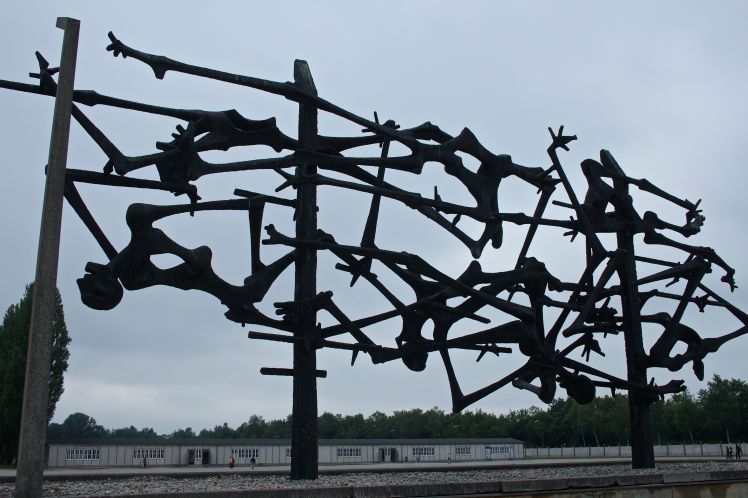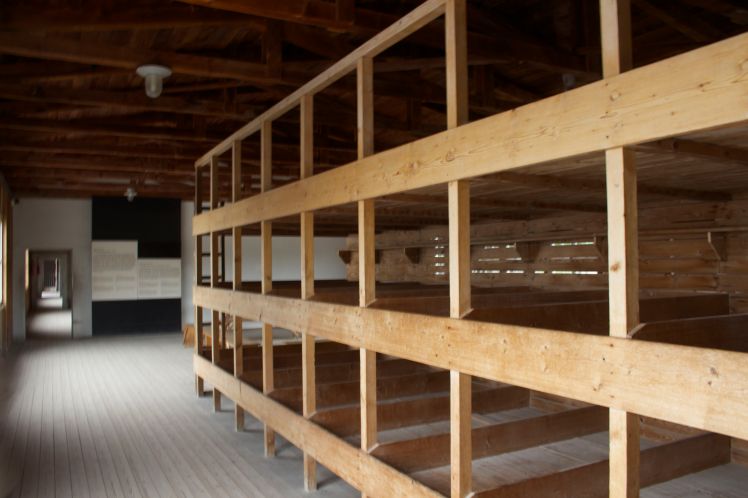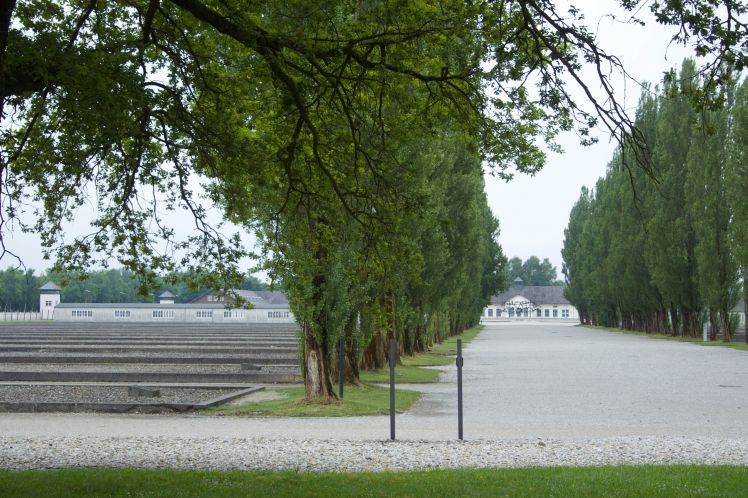Germany is freighted with so much meaning, it is hard for me to unpick it all. Born just five years after the Second World War, to a family who had ‘done their bit’ both on the home front and on the high seas, it is not surprising my view was coloured from the start. One of my favourite comedies – since the original film and including the stage show – is Mel Brooks’ The Producers, whose hit song ‘Springtime for Hitler’ I have been known to perform. And I gag with delighted recognition at John Cleese’s Basil Fawlty trying not mention the war.
Commando For Action and Adventure was a series of small comic books introduced by D.C.Thompson in 1961, as a British response to the international success of Marvel Comics, and largely featured tales of derring-do among our boys in the war. These circulated like hot cakes and I learnt my first German from these, with popular phrases like “Gott im Himmel, Spitfeur!” and “Schweinhund!” In 1983, Jimmy Nail’s character in Auf Wiedersehen, Pet, indignantly declared that “these are the bastards that bombed my Granny!” A sizable number of my father’s generation remained in denial that we had in turn, bombed a great many of their grannies. The tenacity of wartime propaganda meant they refused to believe that we hit civilian targets, despite the evidence of Hiroshima. Read Kurt Vonnegut’s Slaughterhouse Five to sense what it must have been like to suffer the Allied’s fire-bombing of Dresden.
One of the many benefits of the European Union is that those old divisions are largely buried, and recent World War II anniversary celebrations have been constructed as evidence of reconciliation. Most old soldiers, sailors and airmen heartily endorse such behavior. It is largely people brought up in the subsequent peace, soft in body and mind from easy living and no real action, which makes them so bellicose about “the other”, be they immigrants or Europeans. Parents may worry that violent video games could turn junior into a murderous psychopath, but their enjoying the bigotry of the Sun and its mouthpieces on the stump has a similar unhealthy effect.
The behaviour of some of our fellow natives, holidaying on Kos as Syrian refugees were saved from the deep, is a case in point. They are threatening to take their blotched red skin and unsavoury tastes away from Greece for good, “if it continues to look like a refugee camp”, as opposed I guess to like a Canvey Island caravan site. Currently, the Greeks have rather larger fish to fry. Meanwhile, the outraged holidaymakers’ elected representative in Downing Street has sent the Navy to sort things out, ensuring that, at the last count, the UK only had to take 143 of the over three million Syrians displaced by the war which Cameron vociferously backed. He has firmly resisted the EU plan to allocate resettlement on a pro rata basis around Europe, the kind of NIMBYism which he is right, is diametrically opposed to the best communitarian instincts of the European Union, which originated from the post-War settlement which never wanted such lethal divisions again. Shakespeare had it right some 420 years ago, with the lines he gives Shylock in The Merchant of Venice:
If you prick us, do we not bleed? If you tickle us, do we not laugh?
If you poison us, do we not die? And if you wrong us, shall we not revenge?
If we are like you in the rest, we will resemble you in that.
Mind you, I have been somewhat daunted by the pound of flesh that passes for the average German meal. Last night in Mainz, I thought I would go native and order the “hausegemachte Kalbs-Bratwurst mit geschmorten Zwiebeln, Dijon-Wasabi-Senf & knusprigen Kartoffel-Hash Browns”. This was a half-pound veal sausage with all the trimmings, and it defeated me. The two steins of beer did not help. I had noticed that from mid-morning at tourist locations, men order large glasses of beer rather than coffee, so I tried to catch up. Everywhere, the stream of large dishes and large glasses defy medical advice, which should have this nation in cardiac arrest, rather than as the production power-house of Europe. They say a nation marches on its stomach; a significant number of this lot must have been literally trying to avoid stepping on their distended bellies. Yet I am less aware of obesity here than in England.
I made a detour via Dachau this afternoon. I got hopelessly lost looking for it, because such signs that there are are in German, and I wondered how keen the locals are to promote it. I approached one older woman, who feigned ignorance, but a young woman and then a 40-ish postwoman eagerly butted in to help, the latter supplying me with a street map, so I guess they were reconciled to tyne stain on their community. The self-satisfied presumption that we are inherently good and would always intervene to prohibit official malfeasance is simply untrue. Whilst only just over a thousand people have died in custody in Britain in the last ten or twelve years, without a single policeman or prison officer being convicted, is dwarfed by this place and its history, I note little public concern.
I think it important to bear witness to historic sites, naively hopeful that memory serves to make repeats less likely. Interestingly, the inmates had already planned this to be a memorial site even before their liberation by the US Army 70 years ago. You need to be there to get the sheer scale of the place, with just marked beds now where the most of the huts stood. This was the model concentration camp, built in 1933 to house political enemies and other dissidents targeted by the Nazis. It was not an extermination camp, like Auschwitz and Belsen, but it still managed to exterminate an estimated 43,000, through overwork, malnutrition and disease.
Whilst the numbers are unimaginable, it does become more tangible to be in the huts and look at 3-tier bunks – albeit that these are reconstructions – and to learn that it was in the association, not just with their own hut cohabitants, but with those they met daily after rollcall on the avenue, which helped keep their humanity alive. It is meeting, and sharing, with others that defines human existence, and any system which moves to accentuate difference, and reject the other, diminishes us and threatens us all much more deeply than a few extra faces in the doctor’s surgery.






Well said.
LikeLike